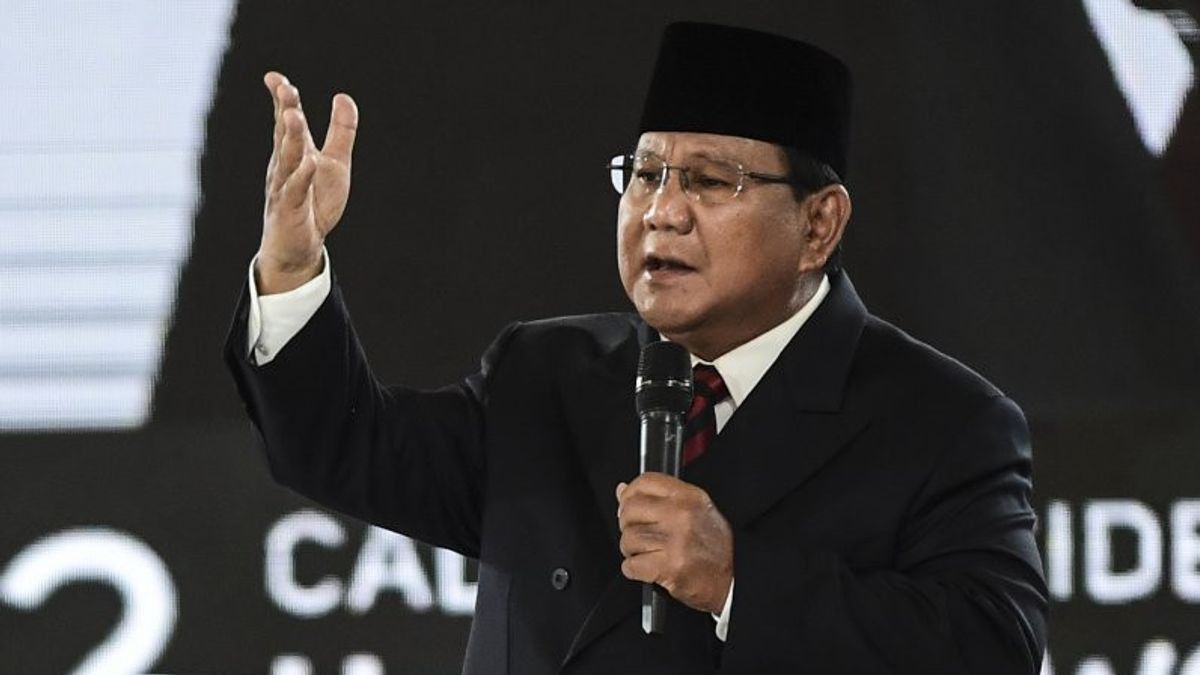YOGYAKARTA Presidential Candidate and Presidential Candidate Prabowo Subianto promised that if he wins in the 2024 presidential election, he will stop importing fuel oil (BBM). Regarding Prabowo's promise to stop importing fuel, the public needs to know how and the opinion of economists regarding the program.
Prabowo's promise to run a food self-sufficiency program to energy was revealed at the Muhammadiyah Public Dialogue with Prabowo Subianto-Gibran Rakabuming Raka.
"We must be self-sufficient in food, self-sufficiency in water, self-sufficiency in energy," said Prabowo, which was broadcast on the YouTube channel of Muhammadiyah University Surabaya, Saturday, November 25.
According to Prabowo, the program was not structured with origin but has been calculated by experts in the coalition. According to him, Indonesia is very rich in energy from plants that can be used for biofuels or biofuels. If biofuel production can be increased, fuel imports can be reduced. In fact, Prabowo believes that all fuel can be completely changed to biofuels.
Responding to the promise given by Presidential Candidate Prabowo, Director of the Center of Economic and Law Studies (Celios) Bhima Yudhistira assessed that the promise was difficult to realize, especially that Indonesia's imports of fuel oil were very large.
Based on Bhima's records, imports of Indonesian fuel from January to October 2023 reached 16.8 billion US dollars.
"That's quite a fantastic number, very big. So replacing it can't be done in the next 5 years," said Bhima, quoted from Tempo, Monday, November 27.
According to Bhima, if the Government replaces fuel with biofuels, it will actually trigger other new problems. Bhima gave an example of last year's incident when the Government pushed for the use of biodiesel B35.
These efforts have created a tug of war between the need for palm oil for fuel and food needs. The incident, according to Bhima, could happen again if the Government's ambition was to continue to encourage CPO for biodiesel and sugar cane for ethanol.
"This step must be strictly regulated so as not to cause attractive attractions to attract people's need for stable food prices, stable cooking oil and sugar prices," said Bhima.
If the Government targets a new energy mix of biodiesel which continues to be large, it is feared that it will have an impact on food prices in the future.
In addition, Bhima also highlighted the possibility of increasing the forest land clearing project to meet the needs of planting energy plants. This policy will have an impact on deforestation, namely changing the forest area to land without debt permanently for human-related purposes.
Bhima also emphasized that the calculation of emissions that the Government needs to consider is not only from the transition of fuel to biodiesel, but also emissions sourced from all supply chains. Because when deforestation occurs, emissions are also high.
"Although it is lower than fuel, the process must also be considered," said Bhima.
Do not let, said Bhima, the Government's intention to suppress fuel imports actually trigger higher emissions than before.
As is known, Indonesia is indeed one of the oil importing countries. This was done because national oil demand continued to rise while domestic oil production could not cover demand.
Indonesia's national fuel consumption itself ranges from 1.4 million to 1.6 million barrels per day. Meanwhile, national oil production only reaches 600,000 to 700,000 barrels per day.
That's information regarding Prabowo's promise to stop importing fuel. Visit VOI.ID to get other interesting information.
The English, Chinese, Japanese, Arabic, and French versions are automatically generated by the AI. So there may still be inaccuracies in translating, please always see Indonesian as our main language. (system supported by DigitalSiber.id)









